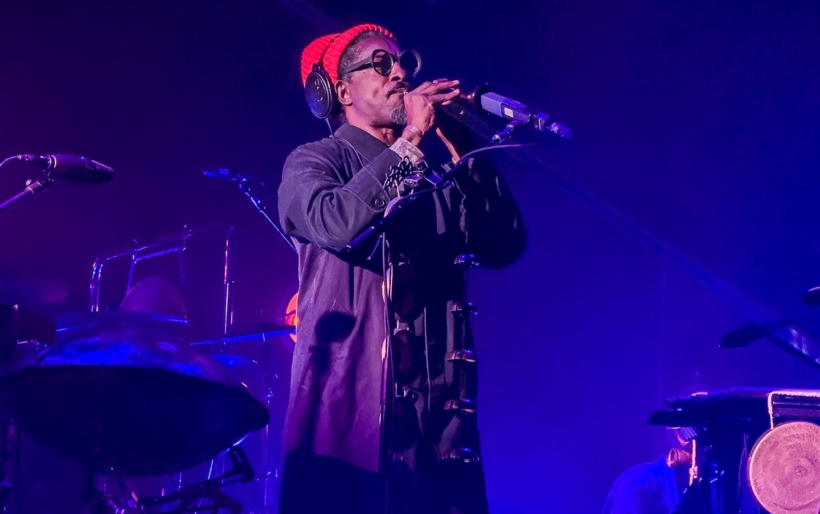On Friday, November 1st, André Benjamin brought his New Blue Sun tour to The Met Philly. The evening of freely improvised music delighted the crowd and raised some crucial questions about the nature of fame, creativity, and discovery.
When rapper-turned-multi-instrumentalist-André Benjamin (aka André 3000) announced his debut solo album New Blue Sun roughly one year ago, the internet — predictibly — erupted in a flurry of jokes, memes, and disbelief. Billed in its press release as a new age record with references to jazz and ambient music thrown about in news coverage of the record, it was clear that New Blue Sun would not be what most hip-hop fans had hoped for in a 3000 solo album. As one-half of beloved Atlanta duo, Outkast, Benjamin built up a body of work that is nearly peerless in rap music’s history. An inventive storyteller and lyricist, Benjamin’s name is regularly brought up by fans, critics, and artists alike in discussions and debates ranking the greatest rappers of all time. With record sales to match their creative accomplishments, Outkast reached commercial and creative heights that few hip-hop acts have ever dreamt of.
With that kind of pedigree in rap music, Benjamin’s decision to release a dreamy, instrumental album, centered around his flute-playing, the responses ranged from outrage, mockery, and dismissal to sincere curiosity. On its face, Benjamin was making a simple choice. Like many artists before him, he was simply following his curiosity and experimenting.


